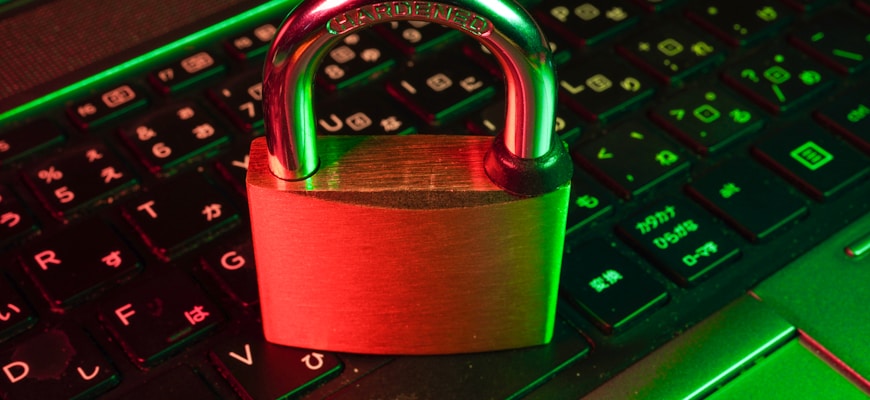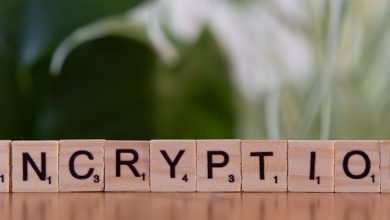How to Secure Your Crypto Wallet from Malware Attacks

- Understanding the risks of malware attacks on your crypto wallet
- Tips for choosing a secure crypto wallet
- Best practices for keeping your crypto wallet safe from malware
- How to detect and remove malware from your crypto wallet
- Protecting your private keys and seed phrases from cyber threats
- The importance of regular security updates for your crypto wallet
Understanding the risks of malware attacks on your crypto wallet
It is crucial to understand the risks associated with malware attacks on your cryptocurrency wallet. Malware is malicious software designed to infiltrate your computer system and steal sensitive information, such as private keys or wallet passwords. These attacks can result in the loss of your digital assets and compromise the security of your funds.
Malware attacks can occur through various channels, including phishing emails, malicious websites, or infected software downloads. Once your device is infected, the malware can monitor your activities, intercept sensitive data, and gain unauthorized access to your crypto wallet. It is essential to be vigilant and take proactive measures to protect your wallet from these threats.
To safeguard your crypto wallet from malware attacks, you should regularly update your antivirus software, use a hardware wallet for added security, and avoid clicking on suspicious links or downloading files from unknown sources. Additionally, enabling two-factor authentication and encrypting your wallet can provide an extra layer of protection against potential threats.
Tips for choosing a secure crypto wallet
When it comes to choosing a secure crypto wallet, there are several factors to consider to protect your digital assets from malware attacks. Here are some tips to help you select the right wallet:
- Research: Before selecting a crypto wallet, do your due diligence and research different options available in the market. Look for wallets that have a good reputation for security and have been around for a while.
- Security features: Choose a wallet that offers advanced security features such as two-factor authentication, multi-signature support, and encryption to safeguard your funds.
- Offline storage: Consider using a hardware wallet or cold storage option for storing the majority of your crypto assets offline, away from potential online threats.
- Regular updates: Opt for a wallet that regularly updates its software to patch any vulnerabilities and stay ahead of emerging cyber threats.
- Community feedback: Take into account feedback from the crypto community, forums, and reviews to gauge the overall security and reliability of a particular wallet.
By following these tips and being proactive in securing your crypto wallet, you can minimize the risk of falling victim to malware attacks and protect your investment in cryptocurrencies.
Best practices for keeping your crypto wallet safe from malware
When it comes to keeping your crypto wallet safe from malware, there are several best practices you should follow to prevent any unauthorized access to your funds. One of the most important steps you can take is to always ensure that your computer or mobile device is equipped with up-to-date antivirus software. This will help detect and remove any malicious programs that may try to steal your cryptocurrency.
Another essential practice is to only download wallet applications from reputable sources, such as the official website of the cryptocurrency project or the Apple App Store and Google Play Store. By avoiding third-party websites and app stores, you can significantly reduce the risk of downloading malware-infected software onto your device.
It is also crucial to regularly back up your wallet data and store it in a secure location, such as an external hard drive or a USB flash drive. This way, if your device is ever compromised by malware, you can easily restore your wallet information and access your funds without any issues.
Additionally, consider using a hardware wallet for storing your cryptocurrency, as these devices offer an extra layer of security by keeping your private keys offline and out of reach from potential malware attacks. Hardware wallets are widely regarded as one of the safest ways to store cryptocurrency for long-term security.
How to detect and remove malware from your crypto wallet
To detect and eliminate malware from your cryptocurrency wallet, it is crucial to regularly scan your device for any suspicious activity. Here are some steps you can take to secure your wallet:
- Install reputable antivirus software and keep it up to date to scan your device for malware.
- Avoid clicking on suspicious links or downloading attachments from unknown sources.
- Use a hardware wallet for an extra layer of security to store your cryptocurrency offline.
- Regularly update your wallet software to ensure you have the latest security patches.
- If you suspect your wallet has been compromised, disconnect it from the internet immediately and seek professional help.
By following these steps, you can protect your cryptocurrency wallet from malware attacks and keep your funds safe and secure. Remember, prevention is always better than cure when it comes to cybersecurity.
Protecting your private keys and seed phrases from cyber threats
It is crucial to protect your private keys and seed phrases from cyber threats when securing your crypto wallet. These are the keys to accessing and managing your cryptocurrency, so it is essential to keep them safe from malware attacks.
One way to protect your private keys and seed phrases is to store them offline in a secure location, such as a hardware wallet or a piece of paper kept in a safe place. This way, they are not vulnerable to online threats like malware.
Additionally, you should never share your private keys or seed phrases with anyone else, as this could lead to unauthorized access to your crypto funds. Be cautious when entering your keys on a computer or mobile device, as malware can potentially capture this information.
Regularly updating your antivirus software and conducting malware scans on your devices can help prevent cyber threats from accessing your private keys and seed phrases. By staying vigilant and taking proactive measures, you can better protect your crypto wallet from potential attacks.
The importance of regular security updates for your crypto wallet
Regular security updates for your crypto wallet are crucial in protecting your digital assets from malware attacks. It is important to stay vigilant and ensure that your wallet software is always up-to-date with the latest security patches. By regularly updating your wallet, you can mitigate the risk of vulnerabilities that hackers can exploit to gain unauthorized access to your funds.
Keeping your crypto wallet software updated is like regularly changing the locks on your front door to prevent burglaries. Hackers are constantly developing new malware and techniques to target unsuspecting cryptocurrency users. By staying ahead of these threats and updating your wallet software, you can significantly reduce the likelihood of falling victim to a cyber attack.
Failure to update your crypto wallet regularly could leave you vulnerable to malware attacks that could result in the loss of your digital assets. Hackers are always on the lookout for vulnerabilities in software to exploit for their own gain. By neglecting to update your wallet, you are essentially leaving the door wide open for these malicious actors to strike.
In conclusion, regularly updating your crypto wallet is a simple yet effective way to enhance your security posture and protect your digital assets from malware attacks. By staying proactive and ensuring that your wallet software is always up-to-date, you can minimize the risk of falling victim to cybercriminals. Remember, the safety of your funds ultimately lies in your hands, so take the necessary steps to secure your crypto wallet today.



